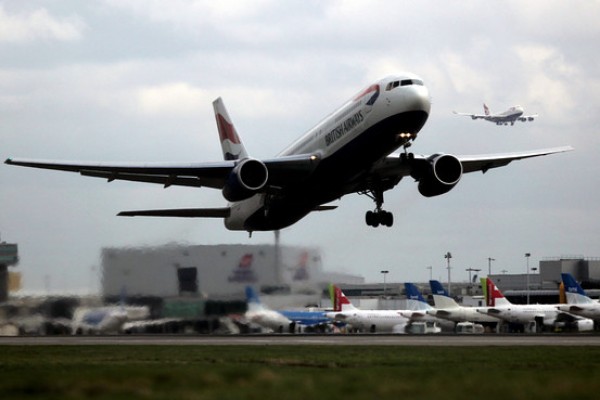BAA loss narrows on Heathrow traffic recovery

BAA Ltd., the owner of London’s Heathrow and Stansted airports, narrowed its first-half loss as traffic was spurred by growth in emerging markets and an alliance between British Airways and American Airlines.
The net loss at the two London airports was 130.4 million pounds ($214 million), compared with deficit of 260.2 million pounds a year earlier, BAA said today in a statement. Sales advanced 12 percent to 1.07 billion pounds.
Passenger numbers at the London terminals rose 7.1 percent to 41.4 million, rebounding from 2010 as disruption caused by volcanic ash from Iceland eased. At Heathrow, traffic was lifted by joint trans-Atlantic services begun by British Airways and AMR Corp. (AMR)’s American in March, together with increasing travel demand from growth economies including Brazil, India and China.
“Some months ago it was European business routes that were the strongest, but in the most recent quarter it was North America,” Chief Executive Officer Colin Matthews said in an interview. “As the alliances come together they offer good frequencies, which are really important to customers.”
BAA was last week ordered to sell Stansted, a base for discount carriers including Ryanair Holdings Plc (RYA), and an airport in either Edinburgh or Glasgow after the latest U.K. Competition Commission ruling in a four-year tussle. The regulator, reviewing an earlier decision, said a breakup is “fully justified” and must start within three months.
Legal Action
BAA, which sold London Gatwick, the second-busiest U.K. airport, under duress to Global Infrastructure Partners in December 2009, has “work to do” before deciding whether to seek a judicial review of the latest findings, Matthews said. The unit of Spanish builder Ferrovial SA (FER) must apply by Sept. 19.
Dublin-based Ryanair, Europe’s No. 1 low-cost airline, will hold a briefing on legal action later today after CEO Michael O’Leary instructed lawyers to issue proceedings over Stansted’s access charges. BAA uses the airport to subsidize Heathrow, the top European hub, O’Leary said yesterday in a Rome interview.
Matthews said today that since BAA’s charges are regulated by Britain’s Civil Aviation Authority and by the Competition Commission, Ryanair has no grounds for a claim.
“I don’t see any basis at all for a legal challenge,” he said. “Having said that, I’d much rather be agreeing with Ryanair than disagreeing. They’re an important customer.”
Bond Issues
BAA, which last month sold $1 billion of 10-year bonds in its first dollar deal, may offer securities in other currencies later in the year, Chief Financial Officer Jose Leo said today.
“You can expect us to be issuing after the summer, markets permitting,” he said by telephone. “We don’t want to be issuing frequently in every single currency, so going back to the U.S. market is unlikely to happen in the next nine months to a year.”
BAA has the equivalent of 7.15 billion pounds of bonds outstanding following its 10 billion-pound purchase by Madrid- based Ferrovial in 2006. While the U.K. business had a first- half operating profit of 287.7 million pounds from continuing operations, its interest payments totaled 499 million pounds.
